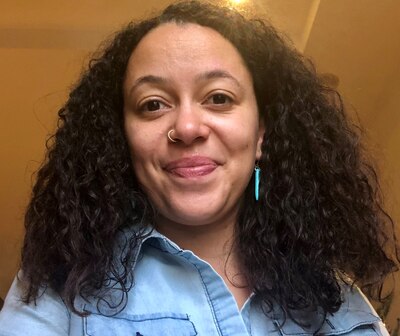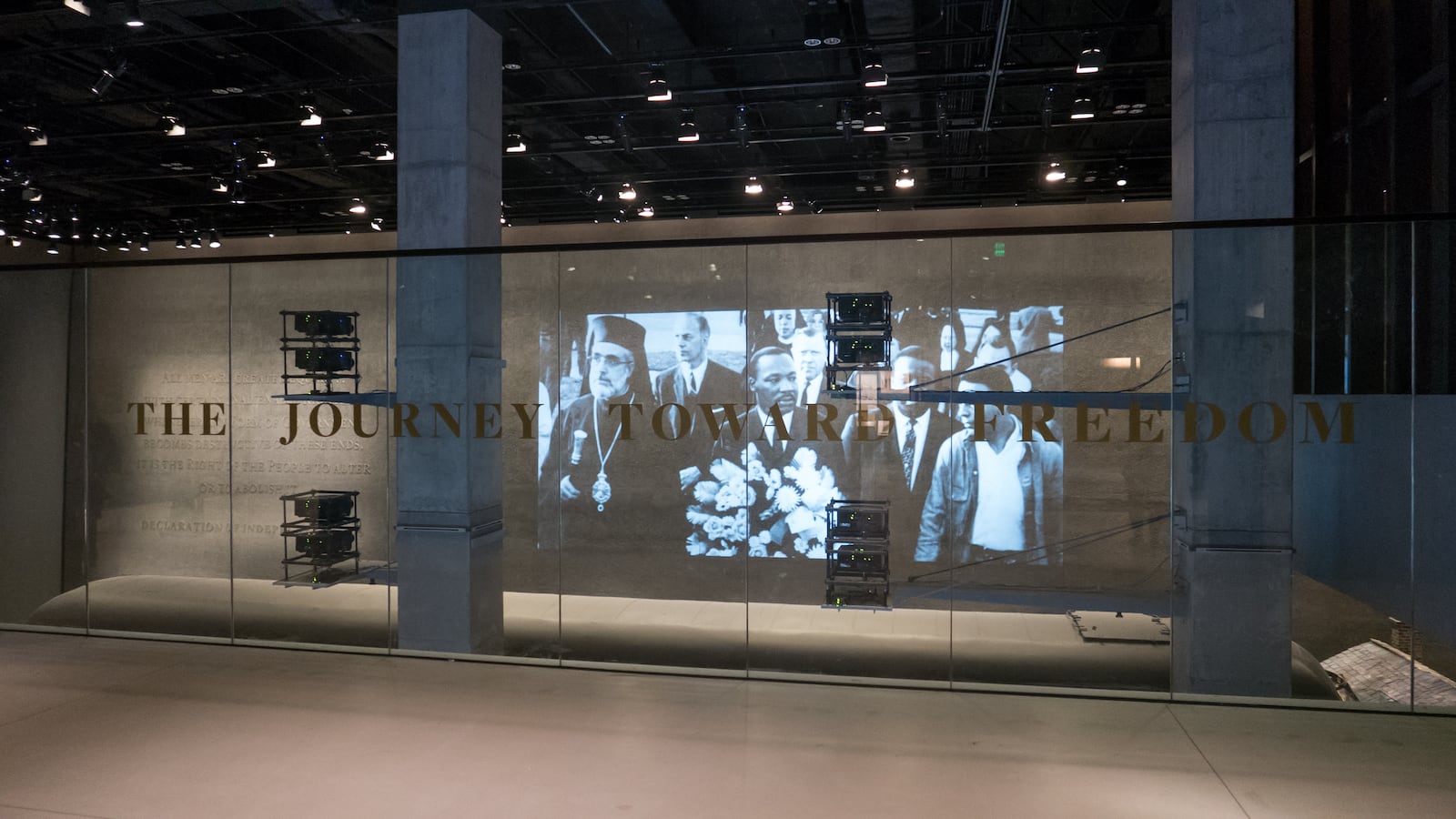Dear Fellow Socially Conscious Teacher,
I have been thinking about you so much, what you and I are going through, and how to be there for each other. Florida Gov. Ron DeSantis’ decision to ban AP African American Studies in his state has made me think of the writer James Baldwin’s powerful 1963 speech “A Talk to Teachers.”
Speaking in front of a group of educators, he stated:
“...you must understand that in the attempt to correct so many generations of bad faith and cruelty, when it is operating not only in the classroom but in society, you will meet the most fantastic, the most brutal, and the most determined resistance. There is no point in pretending that this won’t happen.”
In this speech, Baldwin goes on to say that educators should encourage Black students to seek liberation. His warning about resistance and his strong desire for teachers to uplift students of color couldn’t be more relevant today.

An African American History teacher in West Philadelphia, I learned of DeSantis’ ban after a long day of planning how to teach Reconstruction — my most challenging unit. (Philadelphia, for its part, requires high school students to take an African American history course to graduate.) Upon hearing the news out of Florida, I asked myself: Why would a leader deny Black students a chance to learn about the origins of the KKK, read a speech by Hiram Revels, the first Black U.S. Senator, and compare and contrast the Supreme Court decisions in the Dred Scott case and Plessy v. Ferguson.
And why is the assumption that any teaching of African American History involves some sort of forced discussion of white privilege on white students?
The current discourse prioritizes a false need to protect some students at the expense of the education of Black students (and teachers of color). I wrote about this unfortunate phenomenon for the Pulitzer Center, where I had been part of the inaugural cohort working to incorporate Nikole Hannah-Jones “1619 Project” into curriculum.
Teaching students that racism exists matters. Teaching students that Black people were recently 3.64 times more likely to be arrested for cannabis highlights to them that, yes, institutional racism still exists in this country. Teaching the extent to which millions of Americans profited from forced enslaved labor will promote student understanding of the racial wealth gap. Teaching students about the beauty of Zora Neale Hurston’s writing, Bessie Smith’s music, or Lois Mailou Jones’ artwork provides students the opportunity to celebrate a positive Black identity. My families want that for their children, and what Black families want in classrooms matters, too.
So what are we socially conscious teachers to do? Well, a lot. First, I think it’s important for educators to reach out to families in their community. Share their curriculum and show families the appropriate lessons students are learning in their classrooms. Reach out, especially, to families of color; I am concerned that their voices are being lost in these curriculum battles.
Here are recent responses I got from a student and a parent about why they believe any African American history course is important.
One former student and current college sophomore told me:
“Learning about African American history in high school has benefited me from learning more about my culture and history in this country since it is not really taught with greater emphasis than just black people were slaves, they were free, segregation, segregation ended, black people are all good. When that’s not the complete truth! … African American history is American history. Without it you’re not telling the complete truth about this country!”
[Baldwin’s] warning about resistance and his strong desire for teachers to uplift students of color couldn’t be more relevant today.
And a parent of one of my current African American History students explained:
“I don’t think that it’s just important for my child to learn African American History. I think every child should learn it. I really think it helps to deal with racism. It teaches my child what his ancestors went through and some of the things they’ve overcome. I think that learning our history may help our people to be more productive citizens, to want to better their communities. I think it may help other races to understand what issues we have gone through and may help them to want to come together to become allies and better Americans.”
Families at my school community have expressed support for my curriculum. Yet, I am fully aware that this is not the case for all educators. One tip I have learned from those in states that have banned critical race theory is to frame a lesson around the standard and not the historical content. For example, in teaching about Martin Luther King, Malcolm X, or Fred Hampton, teachers may integrate common standards such as “compare and contrast treatments of the same topic in several primary sources” and “cite specific textual evidence to support analysis of primary and secondary sources.” This framing helps provide coverage for educators because if there’s a backlash or complaint, a teacher can identify the specific skill students are learning.
Black educators need to respond to educational racism by leaning on our ancestors. My grandmother was a descendant of enslaved people. She was born in Grenada and did not know how to read or write. On some plantations, if an enslaved person was caught reading or teaching another to read, they were tortured and murdered. Denying Black people education has been a primary tool of oppression to keep white people in power.
We socially conscious teachers need to remind administrators, politicians, and policymakers about education’s racist past — and point out hypocrisy. The state of Florida apparently has no problem with students taking AP European History. Those courses never seem up for debate.
I know this work is challenging, frustrating, exhausting, and infuriating. Yet, dear socially conscious teacher, we must not forget our true “purpose of education.”
As a young Martin Luther King Jr. wrote in a 1947 college newspaper article:
“We must remember that intelligence is not enough. Intelligence plus character—that is the goal of true education. The complete education gives one not only power of concentration, but worthy objectives upon which to concentrate. The broad education will, therefore, transmit to one not only the accumulated knowledge of the race but also the accumulated experience of social living … ‘brethren! ’Be careful, teachers!’”
I believe in us and the work we do.
Yours in partnership,
Ms. Henry
A version of this essay first appeared in Philly’s 7th Ward.
Abigail Henry has been teaching African American History at Mastery Charter Shoemaker Campus for the past 11 years, and she is the Content Lead for the network. Last year, Abigail won a Pulitzer Center Grant to incorporate the 1619 Project into curriculum. This past summer, she worked as an adjunct professor for St. Michael’s College, where she developed the course “African American History for Teachers,” Henry has also provided African-American History consulting for Villanova University, PBS, and the Trellis Foundation.


